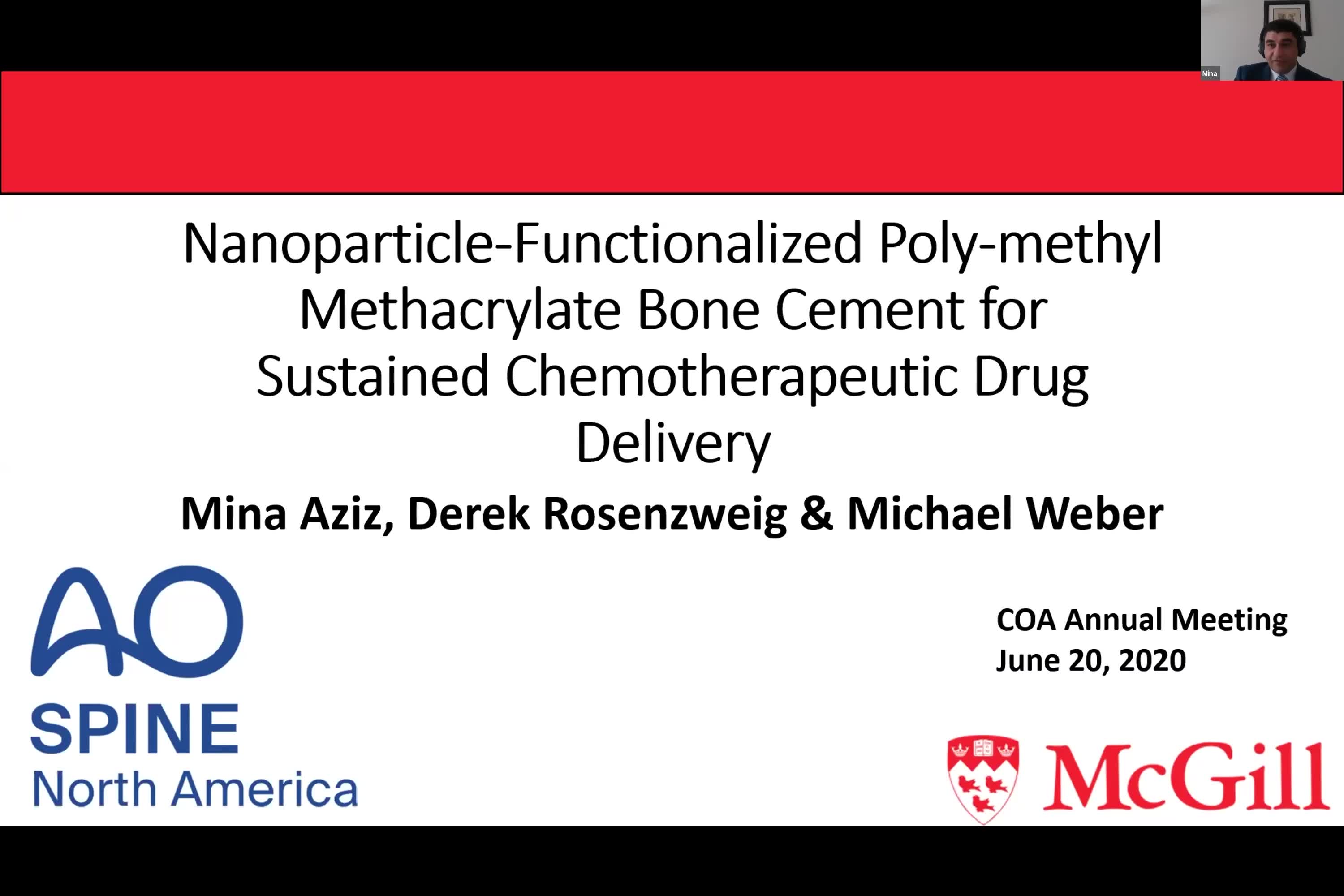Please login to view this media

- Talk
- Canada
Nanoparticle-Functionalized Poly-methyl Methacrylate Bone Cement for Sustained Chemotherapeutic Drug Delivery
Description
This presentation, led by Dr. Mina Aziz, focuses on advancements in the treatment of oncology patients, particularly those affected by spinal metastasis, which can severely impact their quality of life. Dr. Aziz begins by emphasizing the transition in oncology care, highlighting that many patients are living with cancer as a chronic disease rather than a terminal one, necessitating a shift towards improving their quality of life.
The discussion points out the critical role of surgical interventions in managing spinal metastasis, while also noting the limitations of current surgical techniques that can result in local tumor recurrence. In response to these challenges, the study under review aims to develop functional implants using PMMA (polymethyl methacrylate) cement modified with silicon nanoparticles intended to enhance drug release and restore spinal stability post-surgery.
Through a series of experiments, the researchers confirmed the stability of these nanoparticles and their ability to effectively release doxorubicin, a chemotherapy drug, in significant amounts over a sustained period. The findings indicated that the modified cement not only maintained its mechanical properties but also led to a marked decrease in metabolic activity in breast and prostate cancer cell lines during testing.
The results underline that the nanoparticle-functionalized PMMA cement can deliver up to 65% more doxorubicin than standard PMMA with sustained drug release capabilities, showing promise as a viable treatment option to combat tumor growth in affected patients. Future in vivo studies are suggested to further evaluate the treatment's safety and effectiveness, marking a potential advance in the management of metastatic spinal cancers.